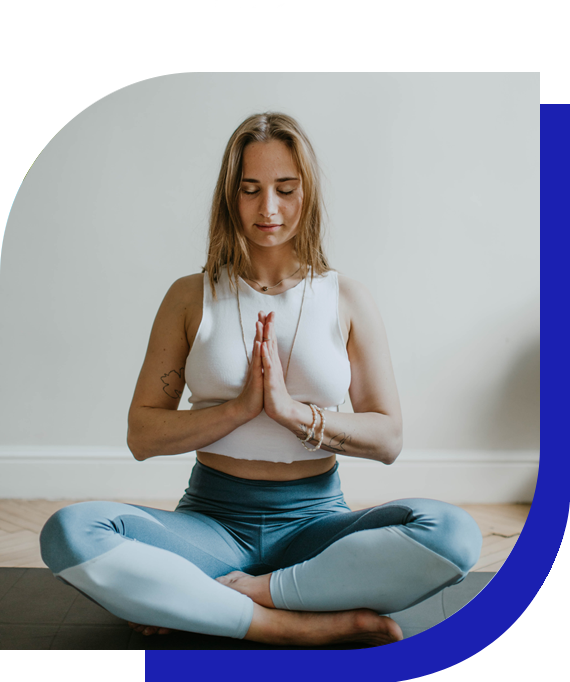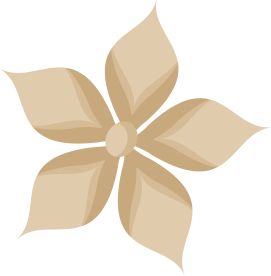


Participation can be at two levels with different fees:
Certifications are based on separate evaluations different from the courses. Courses are preparatory knowledge for certification. No course attendance is needed to apply for certification exams/evaluations. Certifications exams/evaluations carry separate fees. Certification details are in the program bulletin. To review Click here '
Yoga is all about connecting into the source of existence and imbibe the understanding of the nature of existence, the role of the individual and purpose of life. The Yoga Sutras of Patanjali is discussed in detail, in a line-by-line study, to understand the structure of existence, the purpose of living, and the step-by-step approach to experience it. Understanding the mind and role of innate awareness (Atma Vidya) and its impact on the human system is part of the discussion. The historical place of the Yoga Sutras and its relationship to the Vedas and other philosophies is also discussed. A combined modern interpretation of the source and structure of creation is presented.
Prerequisite: NoneWhile the Yoga Sutras provide the philosophy and the basic principles for ‘Self-Realization’, the application for good health of the body-mind-spirit complex resides in the mechanism and methods which form the application principles of all traditional systems of medicine. The mechanism is discussed in terms of Naadis and Vayus that are common to Yoga and Ayurveda. [Some people may find some similarity with Traditional Chinese Medicine.] Also, correlation is made with allopathic understanding of the human system, which would seems like a reductionism from the higher knowledge of Naadis and Vayus. Non-invasive yoga methods used for healing come from Hatha-Tantra-Bhakti Yogas, Power of Breath, Higher Realization, Role of Meditation, Individual and Cosmic Harmony in Lifestyle – individual and group activities.
Prerequisite: Basic understanding of the Yoga Sutras and system of Yoga OR MYT301The discussion related to integrative understanding of modern allopathy and traditional medicine systems begun in the previous course is discussed in greater detail in this course. It requires understanding of the basic human anatomy and physiology, from organs down to cellular level and physiology of energy production, digestion, cellular respiration and production of hormones, enzymes, and neurotransmitters. Since participants will come with varying backgrounds, this course will mostly direct participants to YouTube videos for deeper understanding. Also, a key focus of this course is to explore commonality with other traditional systems of medicine outside yoga and ayurveda, namely Siddha, Chinese Medicine, Homeopathy, Unani, Shamanism, African systems, and Spiritual Healing methods like Reiki and Pranic healing..
Prerequisite: Basic understanding of the yoga system impact on Naadis OR MYT302Measured Yoga Therapy requires scientific measurement tools that are comparable to Naadi-Vayu assessment. This course begins with an introduction to scientific research in measurement concepts in the last 100 years or so. Thereafter, Bio-well, a system based on Electro-photonic Imaging (EPI) is presented as the standard for Measured Yoga Therapy. Those whose interest is more than simply observing the course will need to invest in the equipment and system. Most of the course time will be spent on Bio-well training. The last session will introduce the system of Measured Yoga Therapy and how Bio-well is used. The system of Measured Yoga Therapy involves intake of client information, baseline scan with Bio-well, correlating it with the client’s disorder, testing different interventions, scanning again with Bio-well immediately after each intervention, and based on comparison of the scans deciding whether a specific intervention is effective or not. Time permitting, the last session will provide a short introduction to the Metatron technology as a further research tool. Metatron technology is not standard for Measured Yoga Therapy.
Prerequisite: Basic understanding of yoga system, human anatomy and physiology OR MYT302-303Yoga and traditional medicine systems view disorders labelled by allopathy as simply symptoms at the anatomical or physiological levels. Yoga and traditional medicine systems have an interest in the underlying communications of the Naadi-Vayu within the human system that cause the disorder. Yoga practices like the variety of breathing, physical or sound vibration practices work differently on different Vayus and the consequent impact on the Naadi communication. The ability to measure the impact with Bio-well provides significant insight into what type of yoga practices may impact the different underlying communications to address specific weakness. Thus, this course is designed as an overview of the underlying communication impact of each type of yoga practice typically used for therapy.
Prerequisite: Advanced understanding of the Bio-well system, yoga system and human anatomy and physiology OR MYT400 and preceding course content.MYT requires that all the clients presented for therapy must first have consulted a licensed physician to test or diagnose their health issue. Thus, when presented for MYT we would have diagnosis and lab or scan reports. Underlying each allopathic diagnosis can be a variety of communication imbalances. In combination with their lifestyle information provided in the intake form an effective therapist may quickly consider the possibility of different kinds of communication failures, and the best yoga protocols to address them. This course provides an overview of probable underlying communication issues for a variety of disorders and the yoga approach to address them. The range of disorders include Cardiovascular, Respiratory, Neurological, Musculoskeletal, Endocrine-Metabolic, Autoimmune and Mental Health.
Prerequisite: Advanced understanding of the Bio-well system, yoga system and human anatomy and physiology OR MYT400 and preceding course content.While the Yoga Sutras provide the philosophy and the basic principles for ‘Self-Realization’, the application for good health of the body-mind-spirit complex resides in the mechanism and methods which form the application principles of all traditional systems of medicine. The mechanism is discussed in terms of Naadis and Vayus that are common to Yoga and Ayurveda. [Some people may find some similarity with Traditional Chinese Medicine.] Also, correlation is made with allopathic understanding of the human system, which would seems like a reductionism from the higher knowledge of Naadis and Vayus. Non-invasive yoga methods used for healing come from Hatha-Tantra-Bhakti Yogas, Power of Breath, Higher Realization, Role of Meditation, Individual and Cosmic Harmony in Lifestyle – individual and group activities.
Prerequisite: Content of all previous courses from MYT301 to MYT502.